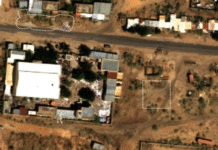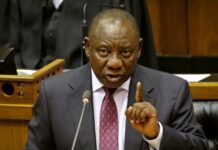By Were Kelly |
The United States Supreme Court appeared deeply sceptical on Wednesday of the legal foundation for former President Donald Trump’s sweeping unilateral tariffs, in a case that could curtail presidential trade powers and invalidate hundreds of billions of dollars in levies.
During intense oral arguments, justices from across the ideological spectrum questioned whether the White House had overstepped its constitutional authority by imposing tariffs on more than 100 countries under the guise of a national emergency.
The case, which stems from challenges to tariffs ranging from 10 to 25 percent, centres on the use of the International Emergency Economic Powers Act (IEEPA) of 1977. The plaintiffs, a coalition of affected businesses and states, argue that the power to levy taxes and regulate commerce resides with Congress, not the President.
Multiple lower courts have already ruled that the bulk of the tariffs were illegal. Justice Neil Gorsuch, a conservative, captured the court’s unease by pressing the government’s lawyer on the limits of executive power, asking, “Where do we, and where does the executive, draw a line that Congress has not?”
The lead counsel for the plaintiffs argued that the administration had stretched the definition of “emergency” beyond recognition to enact a fundamental shift in trade policy.
“This is not about trade policy, but constitutional principle,” the lawyer stated. “The President cannot use a declared ’emergency’ as a pretext to enact what is effectively a national tax scheme.”
In defence of the actions, a spokesperson for the U.S. Trade Representative maintained the administration’s position, saying, “We are confident in the legal authority of the previous administration’s actions, which were taken to protect American industries and national security from unfair trade practices.”
The implications of the court’s eventual ruling, expected by July 2026, are profound. A decision against the government could unwind over $500 billion in tariffs, potentially lowering costs for American consumers and businesses but also disrupting a key policy tool used to bolster domestic manufacturing.
Alternatively, a ruling in favour of the executive branch would significantly expand presidential power over international trade, setting a precedent for future administrations. The hearing signals that the court is carefully weighing the balance of power between the branches of government, with the future of US trade policy hanging in the balance.



















